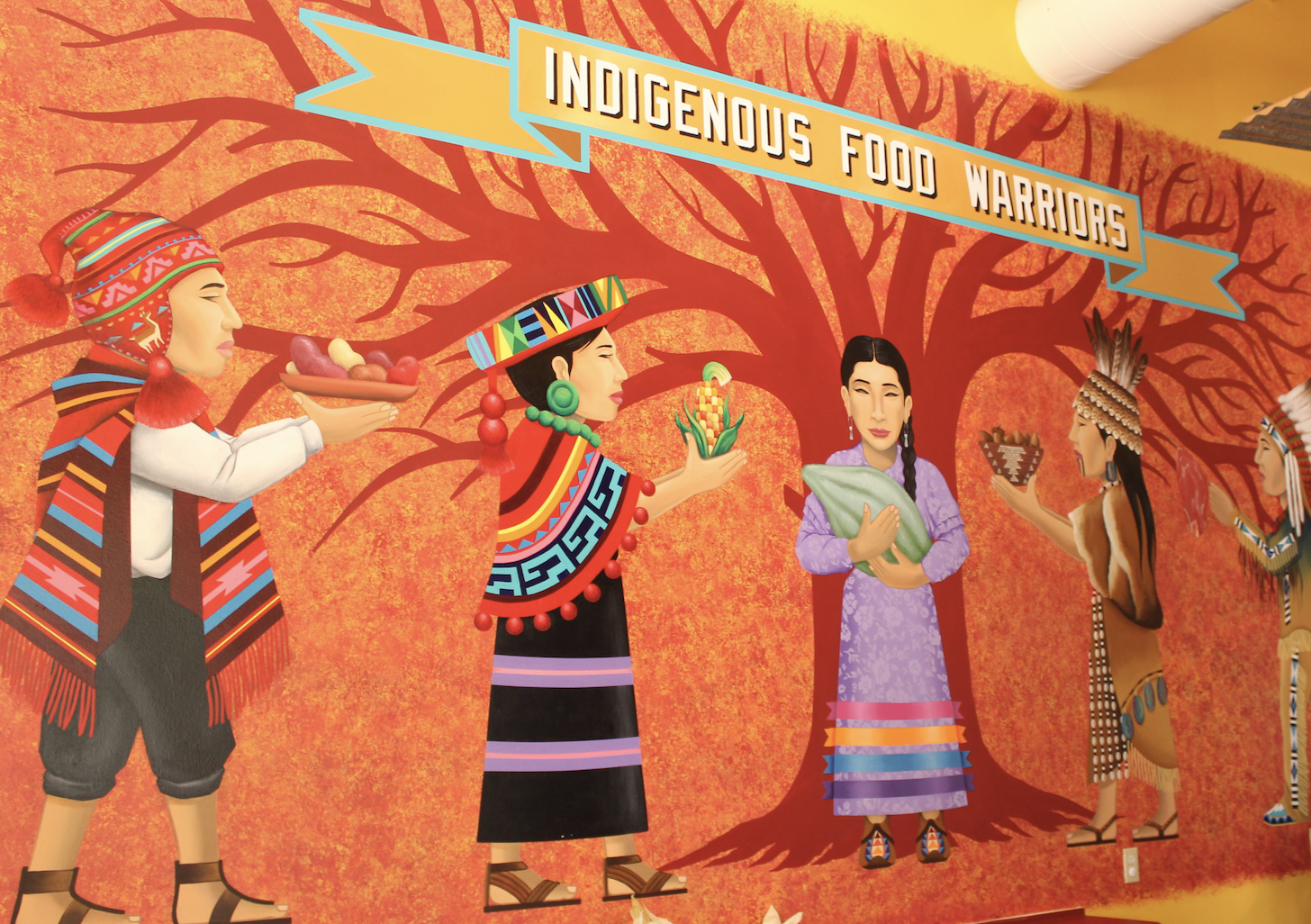
- Details
- By Native News Online Staff
The U.S. Department of Commerce, through the United States Patent and Trademark Office, on Tuesday announced it seeks tribal input on tribal intellectual property issues.
The notice was published a notice in the Federal Register on Formal Tribal Consultation on World Intellectual Property Organization Intergovernmental Committee Negotiations.
In the upcoming consultation, the USPTO wants tribal input on how to best protect genetic resources, traditional knowledge, and traditional cultural expressions as they are being discussed at the World Intellectual Property Organization.
 Make A Donation Here
Make A Donation Here
The National Congress of American Indians (NCAI) and the Native American Rights Fund (NARF) were quick to applaud the decision to hold this long overdue consultation.
Since 2016 NCAI, represented by NARF, has called on the federal government to engage in government-to-government consultation on tribal intellectual property issues. These efforts included NCAI passing resolutions in both 2016 and 2022 calling for immediate and direct consultations regarding international negotiations happening at the World Intellectual Property Organization (Resolution PHX-16-054 and Resolution SAC-22-038).
“The United States federal government needs to ensure free, prior, and informed consent from Tribal Nations as it develops positions to be taken in these international negotiations around genetic resources, traditional knowledge, and cultural expressions. Tribal Nations have sovereign rights and authority as the holders and guardians of these aspects of our cultures that must be respected by the United States. The upcoming consultations are a necessary step to ensure that these legal and moral requirements are met,” said NCAI Executive Director Larry Wright, Jr.
NARF Staff Attorney Sue Noe says so far the United States Patent and Trademark Office has taken positions in negotiations at the World Intellectual Property Organization more aligned with corporations that want to access and use Indigenous Peoples’ genetic resources, traditional knowledge, and cultural expressions than with the United States’ role as trustee for Tribal Nations.
“The United Nations Declaration on the Rights of Indigenous Peoples recognizes Indigenous Peoples’ rights to their cultural and intellectual property, as well as the obligation for the United States to take measures to protect those rights. It is good that the United States is living up to its obligation to consult with Tribal Nations, and the concern now is to ensure that the consultation is meaningful and actually impacts the United States’ negotiation positions,” explained NARF Staff Attorney Sue Noe.
The Federal Register notice provides details for online webinars to be held in January 2024. Two of the four webinars will be for federally recognized Tribal Nations and two will be for state-recognized Tribal Nations, tribal members, Native Hawaiians, and inter-tribal organizations. The USPTO also invites related written comments, to be submitted by February 23, 2024.
Webinar Dates
The webinars for federally recognized Tribal Nations and their proxies will be held on Tuesday, January 16, 2024, from 3 to 5 p.m. ET and Wednesday, January 17, 2024, from 3 to 5 p.m. ET. The webinars for state-recognized Tribal Nations and other tribal members, Native Hawaiians and their representatives, and inter-tribal organizations will be held on Friday, January 19, 2024, from 3 to 5 p.m. ET and Tuesday, January 23, 2024, from 3 to 5 p.m. ET. Register in advance to participate in one of these webinars.
More information is available on the Federal Register.
More Stories Like This
Indian Gaming Association Rallies Broad Coalition Against Sports Event Contracts It Calls Illegal Threat to Tribal SovereigntyNavajo Resources and Development Committee Issues Notice on Livestock Inspection Requirements
American Prairie, Tribal Coalition Files Protest Over Rescinded Grazing Rights
Northern Cheyenne Push Back Against Trump Administration’s Effort to Alter Little Bighorn History
Florida Man Sentenced for Falsely Selling Imported Jewelry as Pueblo Indian–Made
Help us defend tribal sovereignty.
At Native News Online, our mission is rooted in telling the stories that strengthen sovereignty and uplift Indigenous voices — not just at year’s end, but every single day.
Because of your generosity last year, we were able to keep our reporters on the ground in tribal communities, at national gatherings and in the halls of Congress — covering the issues that matter most to Indian Country: sovereignty, culture, education, health and economic opportunity.
That support sustained us through a tough year in 2025. Now, as we look to the year ahead, we need your help right now to ensure warrior journalism remains strong — reporting that defends tribal sovereignty, amplifies Native truth, and holds power accountable.
 The stakes couldn't be higher. Your support keeps Native voices heard, Native stories told and Native sovereignty defended.
The stakes couldn't be higher. Your support keeps Native voices heard, Native stories told and Native sovereignty defended.
Stand with Warrior Journalism today.
Levi Rickert (Potawatomi), Editor & Publisher

